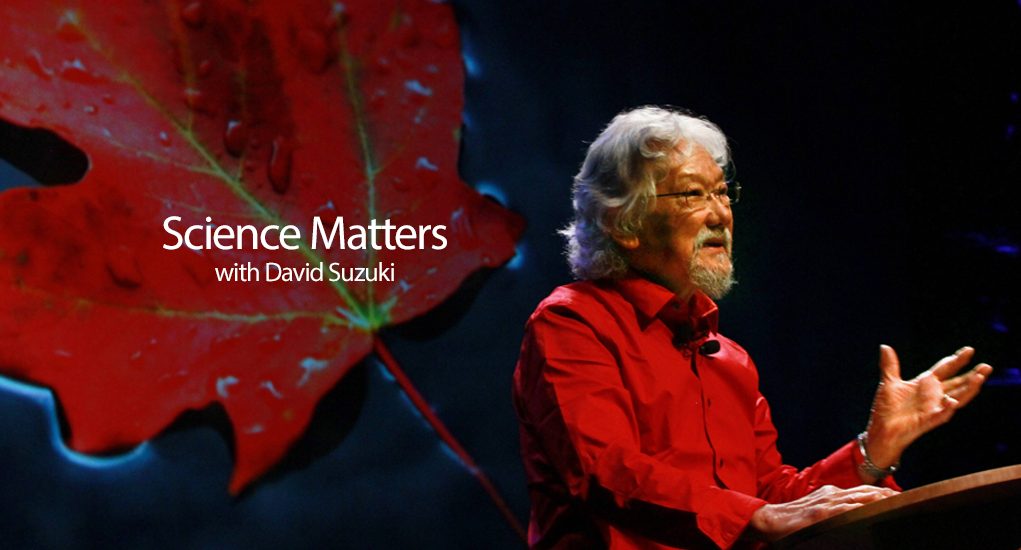Navigating difficult climate conversations
By David Suzuki.
The facts of the climate crisis aren’t in dispute. We know the planet is heating at an unnaturally rapid rate, mostly because humans are wastefully burning fossil fuels and destroying natural areas like forests and wetlands that store carbon, putting human health and survival at risk.
Yet, as many of us prepare to break bread with family and friends during the holiday season, some dread the polarizing conversations that can arise. Many of us have listened to someone confidently assert that climate change is a hoax or that it’s no big deal. How do we talk to them? Should we bother?
Although most people know the climate emergency is serious and needs addressing immediately, we’re all in denial to some extent. For those in the know, it’s partly what allows us to go about our days. The difficult, frightening reality is that humanity continues to rapidly develop and burn fossil fuels, pushing atmospheric greenhouse gases to their highest concentrations in three to five million years — when global temperatures were 2 to 3 C warmer, sea levels were 10 to 20 metres higher and our species didn’t yet exist!
Confronting these facts isn’t easy, but not paying them enough heed over the past few decades has stalled action that could have prevented upheaval. We’re now at a point where further delays could spell disaster.
“Talking is the most important thing we can do and it does make a difference!” climate scientist Katharine Hayhoe argues. But how do we do that? It’s a difficult subject even for those who study it. And many people feel they don’t know enough to discuss it. Others have been misled by massive industry-funded campaigns, supported by politicians and media, to downplay or deny the evidence.
Hayhoe says we shouldn’t argue about science with those who dismiss it, but rather, we should be “connecting the dots to why it matters to us and what we and other people are already doing to fix it.”
Technology is increasingly helping people cut though polarization on subjects ranging from U.S. politics to climate. The David Suzuki Foundation’s new CliMate conversation coach is designed to help people through difficult but important conversations about climate disruption and its solutions.
CliMate, on Facebook Messenger, allows users — regardless of their position on climate change — to move through a conversation with possible questions and responses, offering feedback to help people find common ground and shared values. It’s not about winning a debate but about reducing polarization and cultivating empathy — based on a growing body of evidence about the best ways to make progress on contentious subjects.
People aren’t always swayed by facts, evidence and reason, as important as they are. Some even argue we’re in a post-truth era! Research shows emotional language can be more compelling. And many people trust peers, family and loved ones more than they trust scientists, experts and environmental organizations, so anyone who cares about resolving the climate crisis can make a difference.
“The key to persuasive political dialogue is creating a safe, and welcoming space for diverse views with a compassionate spirit, active listening and personal storytelling,” Karen Tamerius and David Campt write in the New York Times, describing their Angry Uncle Bot, designed to help people discuss U.S. politics. Sharing stories is especially important.
People relate more easily to others’ experiences of pollution-related health issues, or dealing with wildfires or flooding, than statistics and evidence. You don’t have to be an expert to have good conversations. Talk about what you know and have experienced, and ask others about their experiences. Above all, avoid trying to score points or make others look stupid.
It can be difficult. Some people refuse to accept climate science, despite massive evidence showing climate disruption poses an existential crisis that we could overcome by acting quickly and decisively. Without significant public pressure, politicians and industry have failed to take the kinds of action needed to resolve the crisis. But as more people come together around this crisis and talk about it, we can convince our elected representatives to prioritize the health of the planet and its people, including those yet to be born, over short-term, often harmful economic interests.
Here’s to good conversations this holiday season!
David Suzuki is a scientist, broadcaster, author and co-founder of the David Suzuki Foundation. Written with contributions from David Suzuki Foundation Senior Editor and Writer Ian Hanington. Learn more at https://davidsuzuki.org/.







